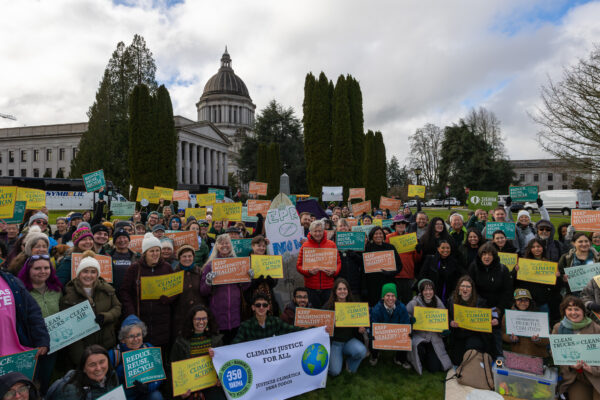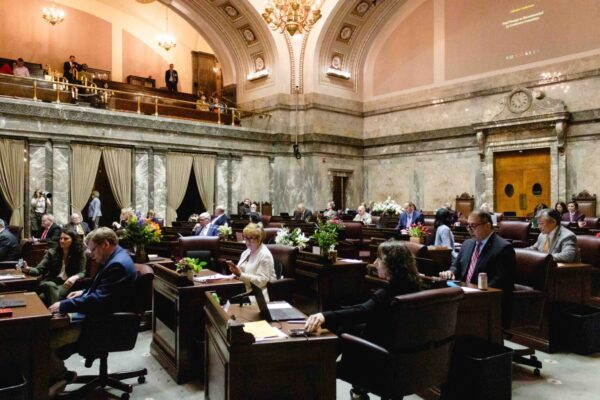Projects now stalled by the lack of a capital budget include more than $360 million for green stormwater infrastructure retrofits, toxic cleanups, Puget Sound restoration, flood risk reduction, community forest projects, wildfire risk reduction work, weatherizing low-income homes, clean energy development, and modernizing the energy grid. The House passed a capital budget with these investments by a 92-1 vote. Historically, the capital budget has had strong bipartisan support due to the many benefits and job creation opportunities it provides for urban and rural areas.
“Tying our state’s capital budget to other pieces of legislation is a troubling and dangerous precedent to set. This is a bad outcome for the people of Washington,” said Becky Kelley, President of Washington Environmental Council. “The Capital budget is critical for our state and invests in win-win projects that create good jobs and protect the environment. It is too important to be weighed down by divisive politics.”
Water for People, Farms, and Fish (Hirst Decision)
The legislature is not expected to reach agreement on an equitable solution to the state’s ongoing water management crisis. Existing water users, tribal treaty rights, and the health of our rivers and streams are at risk of water shortages, and uncertainty increases in the face of climate change.
“This is a huge missed opportunity for our state,” said Chris Wierzbicki Executive Director of Futurewise. “Tribal nations, property owners, and fishing communities all deserve certainty that they’ll have access to reliable water supplies. The legislature left options on the table for a balanced solution.”
Protecting All Communities From Toxic Pollution
In the wake of an unprecedented drop in revenue and a more than $70 million shortfall, the legislature failed to stabilize funding for toxic cleanups and pollution prevention. Projects from the Spokane River Restoration to Bellingham Bay Cleanup continue to slow and stall as funding for the Model Toxics Control Act drops due to historically low contributions from major polluters.
Oil Transportation Safety
Washington’s oil spill program faces a $3.2 million shortfall, and the oil transportation safety system must address protection gaps for Puget Sound and oil pipelines. Legislation to fund state oversight programs and extend oil transportation safety measures to pipelines and to tankers traveling through Puget Sound did not pass and awaits action next legislative session.
Press Contact
General Inquiries
Nick Abraham, Washington Conservation Voters
425-761-9368
Clifford Traisman, Washington Environmental Council and Washington Conservation Voters
206-369-2235
On Capital Budget
Darcy Nonemacher, Washington Environmental Council
206-817-2402
On Hirst Decision and Water Resources
Bryce Yadon, Futurewise
253-249-4430
Are you concerned about an environmental project in your community being delayed by the gridlock in Olympia? Please share your story with us.



